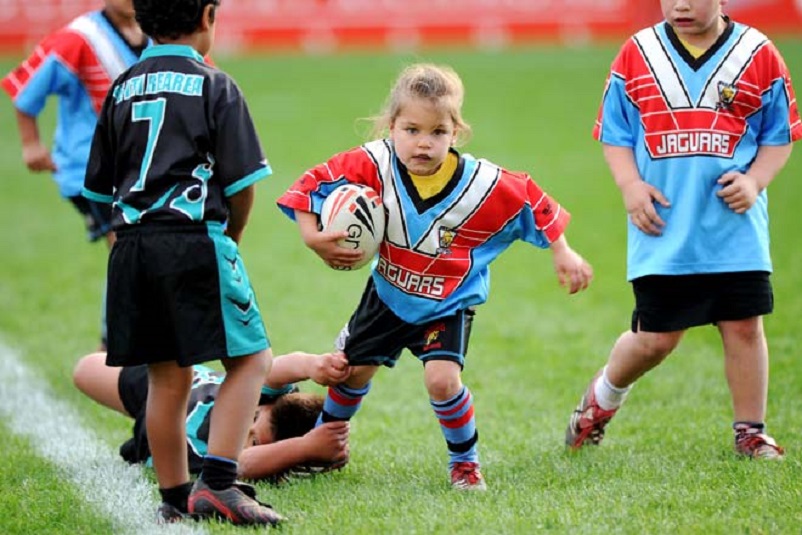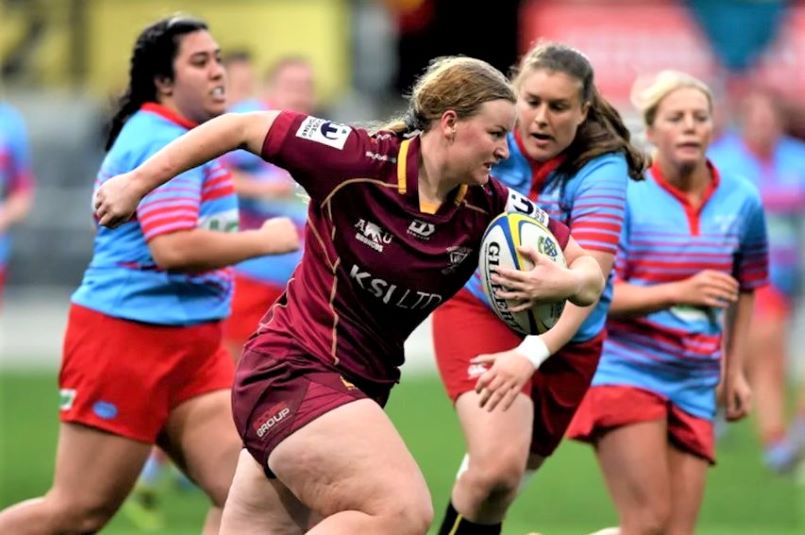 Former players, current players and a specific focus on the women’s game at the heart of six-point action plan developed by the game, for the game
Former players, current players and a specific focus on the women’s game at the heart of six-point action plan developed by the game, for the game
World Rugby to continue to engage, listen and consult to secure the future growth of the game – everyone in the game will have a say and role to play
First series of initiatives include new global law trials with a continued focus on player welfare, introduced from 1 August; and the introduction of Independent Concussion Consultants to support the elite game’s Graduated Return to Play protocols
World Rugby Chairman Sir Bill Beaumont addresses rugby family in open letter
A dedicated focus on welfare for former players, women and the community game are at the heart of a new six-point plan to advance player welfare in rugby, announced by World Rugby and national unions today.
Central to the evolved plan is a commitment to wide-ranging engagement with the rugby family across key welfare matters. It will include initiatives across the life cycle of a player – future, current and former players. It will recognise the differences in game shape and injury risk between the elite and community game and aim to reduce injuries at all levels of the game.
Developed by the game for the game, the plan builds on strong foundations by World Rugby and unions to advance welfare for current players in the professional and community game, players in the women’s game, and former players with a science and engagement-led approach to player welfare and understanding the impact of head injuries in the sport. Initiatives within the plan will be informed by both robust scientific evidence, and input and consultation across the game – including players, former players, fans, clubs, unions and regions.
Writing of the plan in an open letter to the rugby family, World Rugby Chairman and former British and Irish Lions and England captain, Sir Bill Beaumont said: “I am clear that continuing to put player welfare front and centre is critical if we are to grow our sport. The welfare of our players has always been our number one priority, and the plan we are releasing today underlines that commitment.
“It is a plan by the game, for the game, and will have consultation at its heart. We want to build on recent constructive conversations with current and former players, fans and organisations, to make sure we hear from everyone on how to secure the future of the game we all love.”
World Rugby’s action plan is based around six principal commitments:
- A focus on former players: advancing best practice in care, information, education and support for former players struggling or concerned about their health.
- Innovation led by science and research: doubling investment in player welfare, including working with a wide range of scientific institutions to continue to research and advance our understanding of the impact of head injury. World Rugby will continue to bring together a variety of scientific perspectives on concussion in sport to learn from each development in the science and focusing investment into concussion and head impact in rugby studies in particular. This means further targeted investment in research and technology to improve player safety and optimise Head Injury Assessments and the application of the Graduated Return to Play protocols.
- Continue to review and evolve the Laws of the game to safeguard players: the two initiatives announced today – global law trials and the introduction of Independent Concussion Consultants – are the first of a series of actions planned in this area. This includes a dedicated focus on a more flexible approach at community level as well as a global forum on the game later this year, and acting on the outcomes of the ground-breaking study by the University of Otago in New Zealand to make any required adjustments at the community and under-age levels. The following working groups will continue to monitor their respective specialist areas: Head Contact Process, Breakdown, TMO, Scrum and Community law.
- A dedicated focus on the women’s game: recognising both the growth potential and unique nature of women’s rugby. Measures will include dedicated research investment across community and elite women’s rugby and women’s game specific law reviews.
- Continued investment in education: World Rugby will strengthen the provision of information, tools and resources to everyone involved in the game when it comes to head impacts and player welfare. This will include a new Recognise and Remove head injury education programme and App, a best-practice safe tackle technique programme for the whole game, and rollout of the Activate injury prevention warm-up programme with proven concussion and injury prevention benefits across all unions and regions.
- Open engagement with the rugby family: In partnership with unions, World Rugby will consult widely and deeply across the community and professional game, for men’s and women’s rugby. Where this means embracing non-traditional channels and platforms to reach rugby fans and players, we will do so.
World Rugby has announced two initiatives that will specifically deliver against the plan, both debuting over the next month – a package of welfare-driven law trials that will be operational globally from 1 August, most notably including a 50:22 rule on kicking into touch in the opposition’s 22 with the result that the attacking team would secure a lineout.
The second is confirmation that the international federation will fund a programme of Independent Concussion Consultants, not affiliated to either of the two teams playing, who will assess the suitability of a player’s return to play should they progress through the sport’s Graduated Return to Play protocol within 10 days. A number of major announcements across each of the six pillars will follow in the coming months.
World Rugby Chief Executive Alan Gilpin said: “Our mission is to be the most progressive, open and collaborative sport when it comes to the welfare of our players at all levels. This is very much embedded in the strategic plan we launched earlier this year and it is at the heart of the plan we are launching today. To put it simply, we want rugby to be all it can be for all players at all levels.
“Building on strong foundations, we want to reassure players, parents and fans that we care deeply about our rugby family and that we are acting in line with the latest science, research and data to make the sport as safe and accessible for all – at all levels, and for men and women. Rugby is a sport that delivers huge positive health and wellbeing benefits to those who play, and we want many more people to experience it. We do not have a monopoly on good ideas or research and experience – so we want to hear from across all members of the rugby family.”
Rugby’s unwavering commitment to welfare advances is embedded across the game within numerous transformational programmes implemented at a global and domestic level.
Reflecting a similar commitment in France, the RFU at the community level in England will be implementing and evaluating a waist height tackle law variation, restricting late dipping/leading into contact with the head by the ball carrier in approximately 1,200 matches at the under-16 to under-18 age grades during 2021-22.
Reflecting World Rugby’s work with the University of Otago into the largest-ever study of head impacts in men’s, women’s and age-grade community level rugby, the RFU will be utilising instrumented mouthguards to measure training and playing head contact in the Gallagher Premiership from next season.
With the Activate injury-prevention rugby preparation programme developed by the RFU and the University of Bath now embedded across more than 100 national unions worldwide, World Rugby will also be shortly launching a game-wide tackle technique best-practice programme with the ambition of further reducing risk in the sport. – WORLD RUGBY































